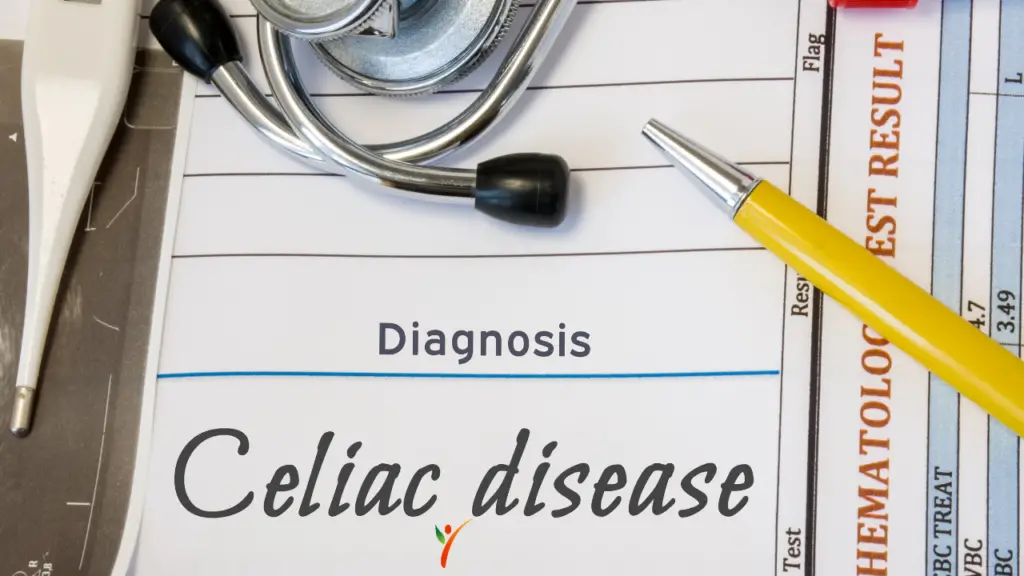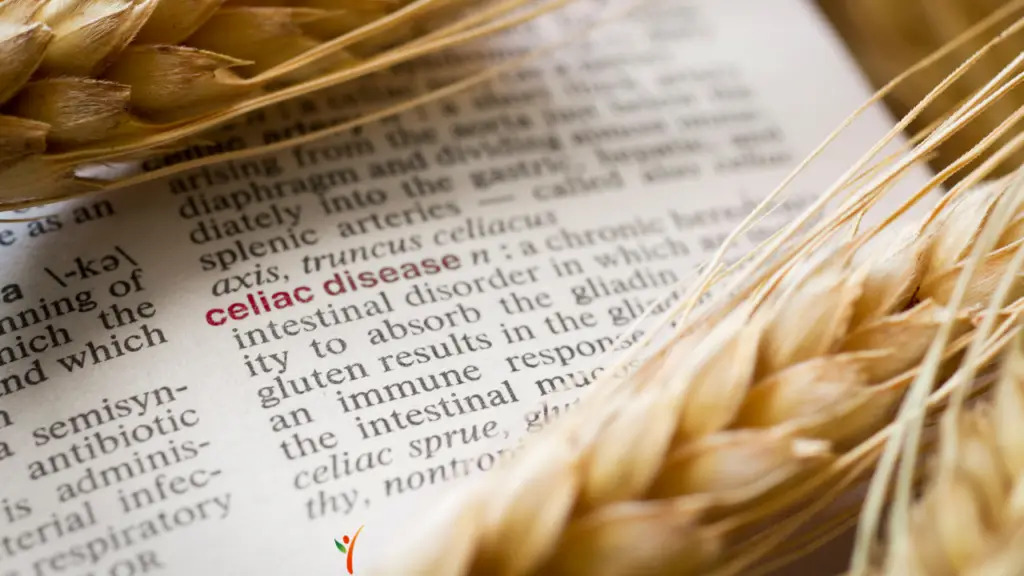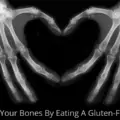Early History of Celiac Disease
Evolution has led humankind to what it is today but with its fair share of drawbacks along the way. Humans took approximately two and a half million years to bring about the agricultural revolution and, soon after, Celiac disease was born. And this was simply because of the change in diet.
An adequately followed diet routine followed for ages came to an end with wheat cultivation.
Not every human body is tolerable to every food, and those with weaker immune suffered from the disease. The condition turned critical when it began to be genetically transferred into infants and resulted in hundreds of deaths.
The history of celiac disease began about 8,000 years after its birth when brought into light by a famous Greek Physician, Aretaeus, in the 2nd century A.D. It was initially termed “koiliakos” after a Greek word ‘koelia,' meaning abdomen.
He described the disease very clearly as the body's immune system's inability to retain the food and hence pass out undigested. Those who suffered from this abdominal distension were referred to as ‘coeliacs' by the Greek Physician.
It was as late as 1887 when the disease's importance came into existence. It was when a renowned English Lecturer and Physician, Dr. Samuel Gee, published his celiac effect. He strongly proposed a gluten-free diet to be the solution for the ailment.
Whatever possible remedies came into the light, it only seemed to reduce the illness's effect and not cure it to the root. An early inspection of the symptoms was made possible, which offered a better understanding of its impact and cure.
Insight Into The 20th Century

The banana diet came into existence to help ease the symptoms of celiac. And this brought relief for thousands of sufferers across the globe.
- During the 1920s, Dr. Sydney Haas explained how bananas could help treat patients with celiac disease symptoms.
- Following this progress, people used the banana diet extensively, saving hundreds and thousands of lives. It is not just a banana making a difference but excluding gluten from the diet is of utmost importance.
- One cannot easily digest the foods such as bread, cereals, cabbages, and potatoes as other food items which accelerate swallowing of air and hence bloating. This remedy came into consideration decades until an imminent breakthrough.
- A significant contribution in the field was made during World War II when a Dutch pediatrician witnessed negative proportionality between bread and health among children. It made it very clear that lower consumption of bread improved their health conditions and vice-versa.
- Based on this, he published his work explaining the role of wheat in the birth of celiac illness. It wasn't until the 1960s that doctors could relate the disease with the malfunctioning of the smaller intestine termed mucosa.
Later in 1997, the autoimmune nature of the disease was finally exhibited by a group of Germans by discovering the autoantigen inside the body of celiac patients with tissue transglutaminase enzyme. It was then declared that the consumption of gluten prompted the illness.
In simple words, celiac illness is a long-term digestive disorder resulting from an immune reaction to a particular form of gluten protein termed as ‘gliadin.'.
This reaction causes inflammatory damage to the mucosa's inner lining, resulting in the dissimilation of minerals and malnutrition.
Symptoms Of Celiac Disease

While celiac disease and its history is a never-ending tale with breakthroughs across eras, it is crucial to understand what symbolizes the illness. Symptoms of this ailment can vary up to extremes and mostly non-identifiable until later in life.
And every individual may witness a different variety that may even change over time.
Known symptoms of Celiac disease:
- Bloating, abdominal cramps, vomiting, nausea, gas, and diarrhea.
- Bones and Joints ache
- Irritation, depression, weakness, panic attacks, and fatigue
- Deficiency of iron, Muscle weakness, cramps, and muscle wasting
- Foul-smell in stools
- Lack of vitamin D, K, and B12; nutrition deficiency
- Legs and feet tingle due to nerve damage.
- Infertility
- A bleeding nose, sore mouth, and yellow teeth
- Migraine headaches
- Retention of fluids, persistent hunger
- Type of skin rashes known as D.H. (dermatitis herpetiformis)
- Intestinal malfunctioning and slow growth among infants and children
- Delayed puberty, weight loss, and tooth enamel damage among teenagers.
It is a clear indication of how vast the range for the symptom is, how it internally destructs your body and results in your system's malfunctioning. Some may witness red patches about the skin disease, while knees, elbows, face, shoulders, and buttocks may display a blistering effect.
Apart from intestinal inflammation of the inner lining, the disease also damages the large intestine and other vital organs. Those displaying mild symptoms such as bloating, gas, fatigue, and abdominal distension often fail to acknowledge their health loss even with regular gluten intake. And those with no significant symptoms of illness are found to be feeling ill at all times.
Stress and anxiety may prove to be essential triggers for the symptoms.
It depends on several factors that contribute to celiac disease's birth among infants, children, and even adults.
- Excessive consumption of gluten
- More extended breastfeed periods for infants
- Age at which consumption of gluten commences
- The extent of smaller intestinal damage
Cause Of Celiac Disease

One in one hundred people get celiac disease. It has now been researched and brought to our attention that one must have the HLA-DQA1 and HLA-DQB1 genes that belong to a family of genes called the human leukocyte antigen (HLA) complex. One must have either the HLA-DQ2 or HLA-DQ8 genes to develop celiac disease. It is almost impossible to develop celiac disease without one of these genes.
Triggering celiac is primarily due to an immune reaction to gluten proteins such as glutenins and gliadins.
- Celiac disease and gluten proteins come from wheat, barley, rye, and oats. All other varieties and hybrids of wheat also possess the capability of infesting the condition.
- Oats are particularly one such grain that has a varying impact on different individuals depending on the cultivation process. It is why we witness a tiny proportion of individuals reacting to oats.
- It is also often difficult to obtain pure oats as often comes contaminated with gluten cereals. But scientists have statistically proven that those coeliacs consuming oats witness a life full of regular intestinal biopsies.
- An individual born susceptible to celiac disease may or may not develop the symptoms depending on physicians' various determinants across the globe.
- The four significant determinants of developing celiac disease include infections, emotional stress, surgery, and pregnancy. And other factors such as the breastfeeding period, consumption of gluten at an early age may contribute to the cause depending on the timing of onset.
Individuals who are most susceptible to developing celiac disease include those:
- People who belong to a family with a history of celiac disease carry either the HLA-DQ2 or HLA-DQ8 genes.
- Suffering from a disorder such as Down-Turner syndrome.
- Suffering from another immune-infected disease affecting liver or thyroid, rheumatoid arthritis, and type 1 Diabetes.
Celiac Disease And Eating A Gluten-Free Diet

The only and the most reliable remedy available for celiac disease is to inherit a gluten-free diet for your lifetime.
One needs to strictly avoid gluten at all times, simultaneously healing the intestines and eradicating all sorts of symptoms. But as soon as you intake gluten again, the symptoms will begin to appear as a result.
Even if one strictly confides in a gluten-free diet, it is nearly impossible to gluten at all costs since many available food products have hidden gluten that you cannot trace.
- It would be best to keep yourself informed and aware of what is suitable for your body to consume. And only a well-qualified dietician can help you keep track of a healthy diet for life.
- Products labeled ‘gluten-free' do not indicate a complete absence of gluten; instead, you can find a negligible proportion harmless for consumption.
- The general list of items that a gluten-free diet following individuals must avoid at all times includes barley, bran, wheat, rye, pasta, bread, cakes, cookies, crackers, bulgur, cereals, oats, enriched flour, beer, and other grain-based alcohol.
- Avoiding processed food products that include seasonings, salad dressings, ketchup, canned soups, canned meats, mustard, soy sauce, candy bars, ice-cream, and canned sausages.
- Other gluten contained essentials include vitamin products, over-the-counter medications, toothpaste, lipsticks, lip gloss, and even postage stamps.
The History of Celiac Disease

Insight into the history of celiac disease and modern evaluation of the ailment brings together a limited list of food products that are considered harmless for consumption among coeliacs. These include millet, rice, corn, sorghum, and wild rice; non-cereals such as bananas, potatoes, amaranth, buckwheat, and garbanzo beans.
- The disease's development might be the cause of several nutritional deficiencies, which must be neutralized by the intake of vitamins and mineral supplements under strict prescription.
- Should a gluten-free diet be made mandatory for all?If you depict no apparent celiac disease symptoms, have no history of gluten intolerance, and opt for a gluten-free diet.
- Then you must consult a doctor before starting the diet. It is because a gluten-free diet may give rise to various deficiency disorders, which may prove to be destructive for your body.
- Reports and studies from nationalized institutions explain that no data proves a gluten-free diet to be safe for weight loss or improved health, hence no means for eradication.
Treatment Of Celiac Disease

Celiac disease treatment has been under investigation since the ailment was detected. People have not yet discovered one effective medication that could curb the prolonging of the disease.
Researchers and scientists are under constant work-in-progress to develop vaccines, medications, and treatments that have a direct healing impact on the intestines and the immune system. But until then, you must not consume gluten.
- If an individual suffering from this ailment continues to consume gluten continually, it can cause chronic medical conditions for life. Malnutrition results in osteoporosis, hair loss, anemia, and bowel ulcers may also occur.
- The illness has also related to the ingestion of intestinal lymphoma cancer and adenocarcinoma of the esophagus, pharynx, and small intestine.
- The difficulty of strictly maintaining a gluten-free diet is a common cause for the development of refractory diseases. This development occurs when the illness has been preserved for a very long time, long enough to prove any diagnosis unworthy.
- It means that the intestines have lost their ability to auto-heal themselves with the help of diet alone. It calls for the need for prescribed medications containing immune-suppressive drugs and corticosteroids.
Celiac Disease Among Children

The family history of celiac disease ICD 10 presents a considerable percentage of infants and children's susceptibility to developing the illness in adulthood. Children are delicate and call for immediate attention when their growth is in question.
- Celiac disease's persistence among children hampers their mental and physical growth if not treated within due time.
- Children may witness shortened height in adulthood, but a gluten-free diet can prevent this.
- A celiac child transited to a gluten-free diet at an early age can help recover from any growth disorder caused by the illness.
- The intestinal lining begins to heal within weeks of the transition.
But this recovery may not last for long, even if you consider gluten intake after decades post-recovery. The susceptibility of the body to show symptoms of the ailment magnifies with increasing age. So, if you have read the phrase ‘gluten-free for life,' then you have read it correctly.
Any amount of gluten consumed in the future is a possible threat to your health in clear terms.






3 thoughts on “The History Of Celiac Disease”
Comments are closed.